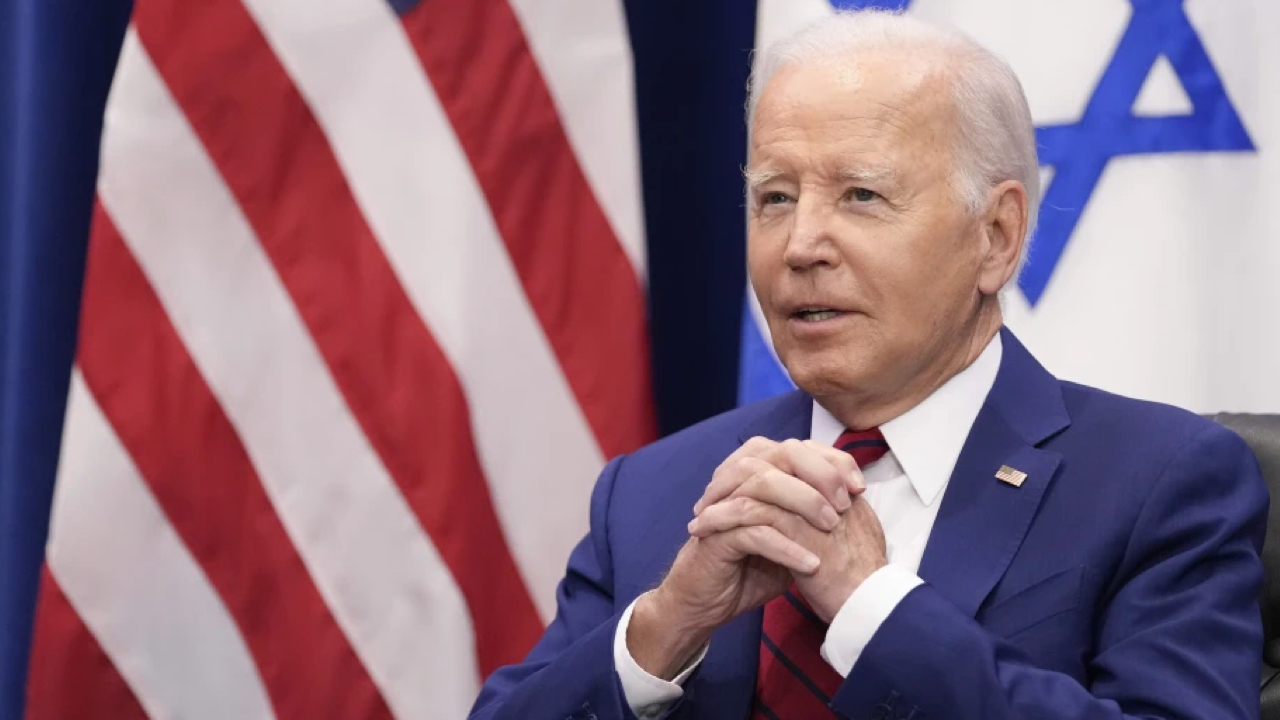Biden to Visit Israel, Jordan; Meet with King, other Arab Leaders

WASHINGTON DC, United States (Kurdistan 24) – Secretary of State Antony Blinken, speaking in Israel, announced on Monday that President Joe Biden would visit Israel on Wednesday, followed by a trip to Jordan, where Biden will meet Jordan’s King Abdullah, as well as Egyptian President Abdel Fattah El-Sisi and the Palestinian Authority President, Mahmoud Abbas.
On a recent tour of the region, Blinken met with all three Arab leaders, as well as Israeli Prime Minister Benjamin Netanyahu.
Read More: Blinken travels to Israel, Jordan, Other Arab States
Biden’s trip is, above all, a major display of U.S. support for Israel. Netanyahu invited Biden to Israel, but before the administration agreed, it secured commitments from Israel on measures to address the humanitarian needs of the Gaza population, The Washington Post reported.
As the Post explained, U.S. and Israeli officials held a 7 1/2-hour meeting on Monday, devising agreed-upon means to get aid into Gaza and create safe zones for the civilian population.
Those discussions aimed not only to address such needs, but also to address Israel’s concern that any aid going into Gaza should not be diverted to Hamas. Only after an agreement had been reached, did Blinken announce Biden’s visit.
Biden Discussion with Iraq’s Prime Minister
Biden also spoke with Iraqi President Mohammed Shia Al-Sudani on Monday. It was the first time—after nine days—that Washington reached out to Iraq to help deal with the crisis that had begun on Oct. 7 with Hamas’s brutal assault on Israel.
“They discussed ongoing efforts to prevent an expansion of the conflict in Gaza in the wake of Hamas’s abhorrent attack in Israel,” the White House summary of their conversation explained.
They also discussed “the importance of addressing the worsening humanitarian crisis in Gaza, in coordination with the UN and regional partners.”
The exchange between Biden and Sudani also included bilateral issues, above all “the importance of the bilateral partnership between Iraq and the United States, as outlined in the Strategic Framework Agreement [SFA] between our two countries,” according to the White House summary.
The SFA was concluded in Dec. 2008, as George W. Bush’s presidency was coming to an end. As it states, the agreement “normalizes the U.S.-Iraqi relationship with strong economic, diplomatic, cultural, and security ties – and serves as the foundation for a long-term bilateral relationship based on mutual goals.”
The SFA became the basis of a later agreement: the Strategic Partnership between the U.S. and Iraq.
Read More: US, Iraq hail ties, following Foreign Minister’s visit
Despite the SFA and the Strategic Partnership, Sudani, who has been in office for nearly a year, has yet to meet Biden. Last month, Sudani was in New York for the opening of the U.N. General Assembly, and he saw Secretary of State Antony Blinken, as well as senior White House officials. They invited him to Washington to meet with Biden, but no date was set. Reuters suggested then that the problem was Iran’s strong influence in Baghdad.
Biden Discussion with Egypt’s President
Biden also spoke on Monday with Egyptian President Abdel Fattah El-Sisi. As Egypt began moving after the October 1973 war toward peace with Israel, culminating in the 1979 Egyptian-Israeli peace treaty, Egypt increasingly became a close U.S. ally.
Biden’s discussion with Sisi was similar to that with Sudani. They discussed Gaza’s worsening humanitarian crisis and ways to address it, as well as “the need to preserve stability in the Middle East more broadly,” according to a White House summary.
Biden “condemned Hamas’s terrorist attack” in his discussion with Sisi and “reiterated that Hamas does not stand for the Palestinian people’s right to dignity and self-determination,” while “the two leaders agreed to continue their close coordination to prevent the conflict from widening and ensure humanitarian assistance reaches those in need.”
Egypt has a special relationship with Gaza. Between 1948 and 1967, it controlled Gaza, which it seized in the Arab attack on Israel that followed its proclamation of independence from British rule.
But Egypt lost Gaza in June 1967. President Gamal Abdul Nasser led the Arab mobilization around the borders of Israel, with the apparent intention to attack. Rather than wait, Israel pre-empted, seizing—within six days—the Sinai, including the Gaza Strip, along with the West Bank, and the Golan Heights.
But even after Egypt recovered its territory in the accords that followed the 1973 war, it did not take back Gaza. Egyptian President Anwar Sadat did not want to rule over the Palestinians there.
In 2005, following the failure to reach a peace agreement with the Palestinian Authority despite years of negotiations, Israel withdrew unilaterally from the Gaza Strip. In 2006, legislative elections were held in Gaza, and they were won by Hamas, which is, in fact, an offshoot of Egypt’s Muslim Brotherhood.
Since then, Israel and Hamas have fought five wars, although this most recent conflict is, far and away, the bloodiest. In fact, the highly regarded Wall Street Journal columnist Peggy Noonan suggested that the brutality and “sadism” of Hamas’s assault on Israel “was strategic” and “meant to force something.”
Read More: Blinken on Hamas: ‘Depravity in the Worst Possible Way’
After his meetings in Israel, Biden will travel to Jordan, where he will meet with the three Arab leaders and coordinate on the points that the White House summary of his phone conversations highlighted, including the provision of humanitarian aid to the civilian population in Gaza; deterring any expansion of the war, beyond Israel and Hamas; and strengthening bilateral relations between the U.S. and the three Arab parties.
